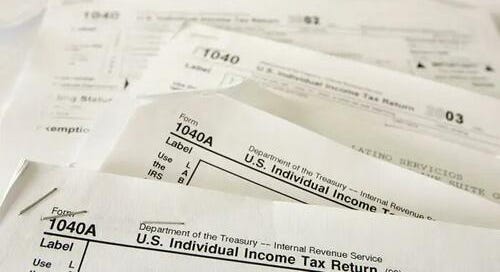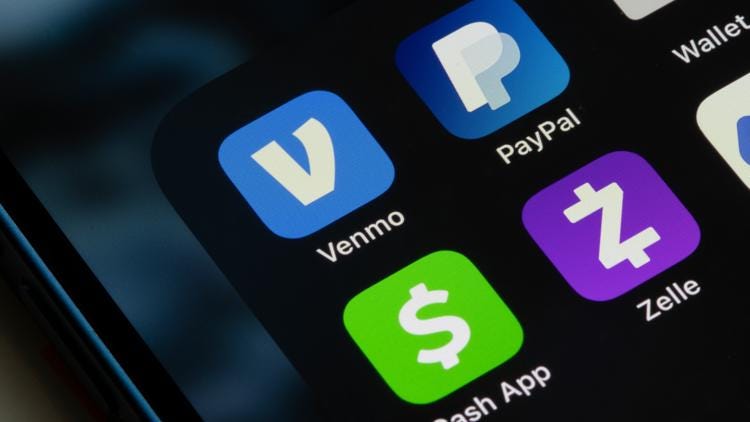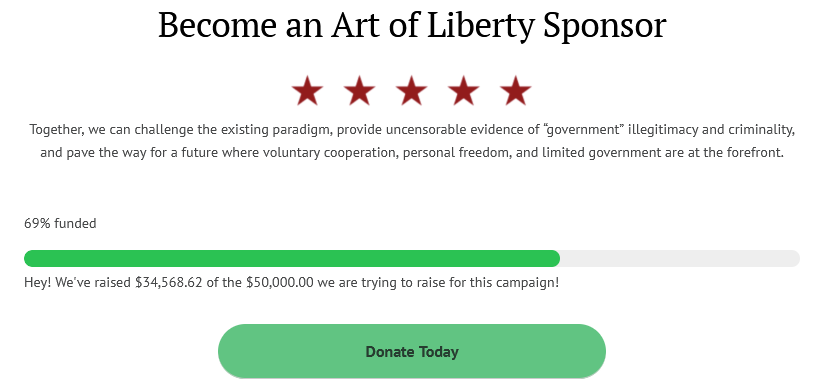IRS: Venmo, PayPal And CashApp Freelancers Face 2024 Reporting Requirements
After delaying for two years, the IRS is planning to finally start implementing its new 1099-K reporting requirement for anyone earning income via third-party payment apps such as PayPal, Venmo, Zelle
The rule, which was originally slated to take effect in 2022 and was delayed for 2023, means that a 1099-K form "could be sent to anyone" using those services who makes over $600 per year, according to the agency.
"We spent many months gathering feedback from third-party groups and others, and it became increasingly clear we need additional time to effectively implement the new reporting requirements," said IRS Commissioner Danny Werfel several weeks ago in delaying the rule again.
Prior to the rule, third-party apps only sent 1099-K forms to people who received $20,000 or more in commercial payments across more than 200 transactions.
The IRS has delayed this new reporting rule for two years in a row to give payment apps more time to prepare for the change. One sticking point: Distinguishing between taxable and nontaxable transactions through third-party apps isn't always easy. For example, money your roommate sends you through Venmo for dinner is not taxable. Money received for graphic design work you tackled is. The IRS paused implementation to avoid confusion and incorrect earnings being reported. -CNET
The IRS will begin with a phased rollout, requiring payment apps to report income by freelancers and business owners with earnings over $5,000 vs. $600 in the hopes that raising the threshold will reduce 'noise' from inaccuracies, while eventually working towards the $600 minimum.
"Taking this phased-in approach is the right thing to do for the purposes of tax administration, and it prevents unnecessary confusion," said Werfel. "It’s clear that an additional delay for tax year 2023 will avoid problems for taxpayers, tax professionals and others in this area."
As the Epoch Times notes further; A provision in the American Rescue Plan requires users to report transactions through payment apps, including Venmo, Cash App and others, for goods and services meeting or exceeding $600 in a calendar year. Before that provision—and now for this year—the reporting requirement applied only to selling goods and services to taxpayers who received over $20,000 and had over 200 transactions.
“The Form 1099-K could be sent to anyone who’s using payment apps or online marketplaces to accept payments for selling goods or providing services. This includes people with side hustles, small businesses, crafters and other sole proprietors,” the IRS said. “However, it could also include casual sellers who sold personal stuff like clothing, furniture and other household items that they paid more than they sold it for.”
“Reporting requirements do not apply to personal transactions such as birthday or holiday gifts, sharing the cost of a car ride or meal, or paying a family member or another for a household bill. These payments are not taxable and should not be reported on Form 1099-K,” the agency added.
There has been confusion about what taxpayers should do if they sell an item at a loss. Those scenarios shouldn’t be taxed but may still generate forms to send to taxpayers.
“Selling items at a loss is not actually taxable income but would have generated many Forms 1099-K for many people with the $600 threshold. This complexity contributed to the IRS decision to delay the additional year to provide the agency time to update its operations to make it easier for taxpayers to report the amounts on their forms,” the agency said.
Starting this month, the IRS will plan a phased rollout of the plan and will require third-party payment apps and services to report business and freelancer earnings of more than $5,000 rather than $600, according to the IRS.
“This means that for 2023 and prior years, payment apps and online marketplaces are only required to send out Forms 1099-K to taxpayers who receive over $20,000 and have over 200 transactions. For tax year 2024, the IRS plans for a threshold of $5,000 to phase in reporting requirements,” said the agency.
THANK YOU! to Everyone Who Contributed to our 1st Ever Fundraiser for the Art of Liberty Foundation! As of January 2nd we have raised $34,568 or 69% of our $50,000 goal! Donations are still coming in via postal mail and the internet so we will announce the final total next week BUT I wanted to thank everyone who contributed and/or went “Paid” on Substack. We simply couldn’t do this work without the folks who support us financially! It is so very much appreciated!! Happy New Year to All!! - Etienne








What’s interesting is that the irs is not a government entity it’s a private entity allowed to operate under the law. How?
CBDC’s will fix everything for the Reich. No need for filing tax returns and endless 1099 and other forms. Every transaction (if approved) will be evaluated for tax consequences and if determined to have generated income will be taxed instantly and deducted from your “bank” balance. Presto. If you disagree with an event there will certainly be an appeal process that will take no longer than 24 months to process.